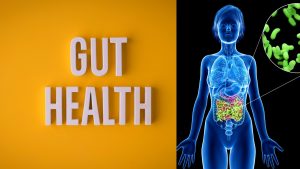
Treat The Pain, Get Off the Painkiller
The Painkiller and Analgesics are only part of the the solution. Read about getting rid of that pain using some super foods like Fiber, Antioxidants & Omega 3 Fatts
You’ve probably heard of omega-3 fatty acids, especially if you have an inflammatory type of arthritis. They help reduce inflammation throughout the body, and some studies have shown benefits for heart health, brain function and diabetes.
Fish oil (EPA and DHA) is the most commonly used dietary supplement globally. A study published in the Annals of Rheumatic Disease in 2013, found that when a high-dose fish oil supplement is added to so-called triple therapy for rheumatoid arthritis (methotrexate, sulfasalazine and hydroxychloroquine), patients achieved better outcomes: they were far less likely to “fail” treatment and twice as likely to reach remission than those who did not take a supplement.
Until somewhat recently, no one really knew what made omega-3s so beneficial. Researchers, however, believe they have uncovered the secret of omega-3 fatty acids. A study at Brigham and Women’s Hospital in Boston revealed that omega-3s actually convert into compounds that are 10,000 times more powerful than original fatty acids.
These compounds include resolvins, which help bring an inflammatory response in the body to an end, says the study’s lead researcher, Charles Serhan, PhD, director, Center for Experimental Therapeutics and Reperfusion Injury at Harvard Medical School, Boston.
Omega-3 fatty acids are a type of fat the body cannot make on its own. They are an essential fat, which means they are needed to survive. We get the omega-3 fatty acids we need from the foods we eat.
Fish are the best food source of omega-3 fatty acids. Some plants sources like Flax Seeds and Chia seeds also contain omega-3 fatty acids.
There are two kinds of omega-3 fatty acids in fish — eicosapentaenoic acid (EPA) and docosahexaenoic acid (DHA). The form of omega-3 in plants is called alpha-linolenic (ALA).

Most research around the subject claim that patients who do not have a history of heart disease eat at least 2 servings of fish each week. This should include a variety of fish. Cold-water wild varieties of fish like mackerel (Ayala), tuna, salmon, sardines and Hilsa contain high amounts of omega-3 fatty acids.
If you have heart disease, your healthcare professional may recommend that you have one gram of EPA +DHA every day. If you have trouble getting this amount through food alone, talk to your doctor about taking a fish oil supplement.
If you have high triglyceride levels, you may need to eat more foods that are good sources of omega-3 fatty acids, even if you take medication to lower your triglyceride levels. Your healthcare provider may also want you to take a fish oil supplement.
Many people take supplements to support joint health. Some take them to relieve current joint pain, while others take them to prevent pain from developing.
Anyone concerned about joint pain or their joint health should see a doctor for a full diagnosis. That said, there are a number of supplements available that might help keep the joints healthy.
Inflammation is a natural response to infections and damage in your body. Therefore, it is vital for your health. However, inflammation sometimes persists for a long time, even without an infection or injury. This is called chronic — or long-term — inflammation.
Long-term inflammation can contribute to almost every chronic illness, including heart disease and cancer. Notably, omega-3 fatty acids can reduce the production of molecules and substances linked to inflammation, such as inflammatory eicosanoids and cytokines
Studies have consistently observed a connection between higher omega-3 intake and reduced inflammation

Fish is the best food source of omega-3 fatty acids, but several plants contain ALA. This is not as rich of a source of omega-3 fatty acids, but some studies show that ALA can reduce the risk of cardiovascular disease.
Good sources of ALA are ground or milled flaxseeds, flaxseed oil, chia seeds, walnuts, soy foods and canola oil. Another source of ALA is algae or algae oil, which is broken down to DHA. Many foods that are fortified with omega-3 use algae oil. These are excellent options for vegetarians that do not eat fish.
There are currently no serving size recommendations for ALA-rich foods. But, adding these foods to your diet regularly may help your heart health.
They have many powerful health benefits for your body and brain. In fact, few nutrients have been studied as thoroughly as omega-3 fatty acids.
Here are 5 more health benefits of omega-3 fatty acids that are supported by science.
Omega-3 Fats Are Good For Your Skin
DHA is a structural component of your skin. It is responsible for the health of cell membranes, which make up a large part of your skin. A healthy cell membrane results in soft, moist, supple and wrinkle-free skin.
EPA also benefits your skin in several ways, including
Omega-3s Can Improve Eye Health
DHA, a type of omega-3, is a major structural component of the retina of your eye. When you don’t get enough DHA, vision problems may arise. Interestingly, getting enough omega-3 is linked to a reduced risk of macular degeneration, one of the world’s leading causes of permanent eye damage and blindness
Omega-3s Can Improve Risk Factors for Heart Disease
Heart attacks and strokes are the world’s leading causes of death. Decades ago, researchers observed that fish-eating communities had very low rates of these diseases. This was later linked to omega-3 consumption. Since then, omega-3 fatty acids have been tied to numerous benefits for heart health
These benefits address:
Despite these beneficial effects on heart disease risk factors, there is no convincing evidence that omega-3 supplements can prevent heart attacks or strokes. Many studies find no benefit
Omega-3s Can Promote Brain Health During Pregnancy and Early Life
Omega-3s are crucial for brain growth and development in infants. DHA accounts for 40% of the polyunsaturated fatty acids in your brain and 60% in the retina of your eye
Therefore, it’s no surprise that infants fed a DHA-fortified formula have better eyesight than infants fed a formula without it. Getting enough omega-3s during pregnancy is associated with numerous benefits for your child, including
Omega-3s Can Fight Depression and Anxiety.
Depression is one of the most common mental disorders in the world. Symptoms include sadness, lethargy and a general loss of interest in life. Anxiety, also a common disorder, is characterized by constant worry and nervousness. Interestingly, studies indicate that people who consume omega-3s regularly are less likely to be depressed. What’s more, when people with depression or anxiety start taking omega-3 supplements, their symptoms improve.
There are three types of omega-3 fatty acids: ALA, EPA and DHA. Of the three, EPA appears to be the best at fighting depression.
One study even found EPA as effective against depression as a common antidepressant drug.

The Painkiller and Analgesics are only part of the the solution. Read about getting rid of that pain using some super foods like Fiber, Antioxidants & Omega 3 Fatts

Gut Bacteria may turn out to be the most essential in your fight against Covid & other Infections. Your Immunity is heavily linked to your Gut Health. Stomach Upset, Skin Rashes, Weight Fluctuations. Add Probiotics

Covid Recovery Nutrition Tips to Fight Dehydration, Loss of Appetite and Fatigue by Madhoo Salunkhe . Covid Eating has to be understood by all for faster recovery from Covid.
© All Rights Reserved OSR Sportsworks Consulting LLP